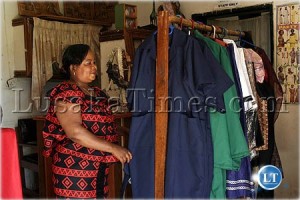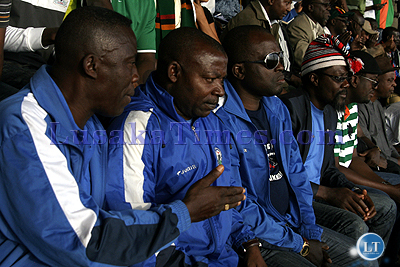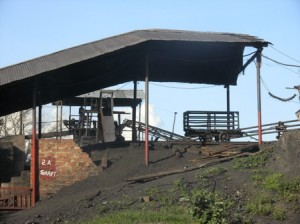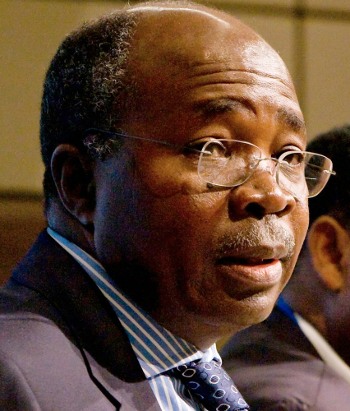
By Wesley Ngwenya
On Tuesday, I took the day off and wanted to prepare for a presentation I was to make the next day. I walked across the street from where I live to buy the paper. One my way from buying the paper, I was stopped by a young man who made a comment that he liked my outfit.
I was wearing a Sean John casual outfit suit. I asked him why he liked the Sean John outfit. “It is cool. The clothes are strong and original. That is what rappers in America wear because it is a very expensive brand,” shared the young man. We talked briefly with the young man and learned that he was unemployed and looking for employment.
This got me thinking about branding. It is true that Sean John has become a world class brand–a brand that can be associated to rap and wealth even by a young man in Lusaka, Zambia. By the way, this young man has never been to the United States let alone outside Zambia. Personally, Sean John and Enyce are among my favorite brands in casual clothing. I remember during my Dillard’s days in Wichita, Kansas. I had stocked up so much on these brands such that Dillard’s upgraded my credit card to an elite client.[pullquote]Why is it that Zambia has no outstanding brands that can compete favorably and fair well within the continent of Africa or even within the country itself?
[/pullquote]
Why is it that Zambia has no outstanding brands that can compete favorably and fair well within the continent of Africa or even within the country itself? There are probably many reasons, as outlined by many scholars that can be attributed to this. Personally, the first reason and perhaps most dangers is the “Foreign is Good” perception. Zambia today has very little it calls its own. Zamtel is Gone. Who’s next? Gone are the good old days when we manufactured clothes, blankets, bicycles, batteries, shoes, etc. Today we import toothpicks, toilet paper, cotton balls, nails, plastic bags, wires (even with the abundance of copper in Zambia) and the list goes on and on.
Our minds have been tuned to believe that foreign things are strong, better, reliable and make us feel good. Maybe this was true during the pre independence days. Maybe it was even true during the Kaunda days. But we have clearly seen and experienced that this is not true today. The many goods that flood our market today are poor in quality and yet expensive. Many of us will agree that one time or another we have bought something we thought was good quality but turned out to be the opposite. Don’t we have a word for that in Zambia? It is called Gon’ga—which pretty much means being cheated or undersold.
Because many of us have realized that foreign is not always good we need to turn to something local to meet our demands, but what can we find on the market that is local? This leads me to my next point; Zambia lacks vibrant local industries. Because we have not invested in the local industry, we have looked outside our borders. A well invested local industry is vital for a growing economy like Zambia. It is through this local industry that our goods will start competing with the foreign goods. These local goods will bring more revenue for the country than the foreign goods. Through the local industry more people will be in gainful employment and many people in our communities will benefit more.
What if Sean John set up a factory right here in Lusaka? Although, it will still be a foreign brand it will be within reach for the young man since he could get a job at the factory and be able to support his family. Better still, if our economy encouraged local entrepreneurship–we could set up our own local clothing company. This young man could be empowered with the right tools so that he can become his own boss. He could name the clothing line whatever he wanted. What is important is to create a brand that, firstly, will be appreciated by the local market the way Sean John is in the United States. Like we say here in Zambia local is laka.
The third reason why Zambia lacks vibrant brands is that we have poor policies by the government. Government is in charge of not only creating policies that are biased towards Zambians but also ensuring that those policies are adhered to. Government officials are, after all, the culprits in rushing for foreign goods. They take those luxurious trips to buy expensive brands of perfumes, clothes and shoes. If these people at the helm see Zambian goods as inferior how do we expect them to push policies that will enhance the image of our local goods?
The government needs to rise up and support the local brands both in policing and purchasing. It is time we had suit designers who are Zambians, It is time we had shoe designers who are Zambians. And it is time we had a perfume that is Zambian. These can only be achieved if the policies are placed in the right places by the right people.
The final reason why Zambia lacks vibrant brands is that we are not promoting the buy Zambia campaign. Buying Zambian goods not only empowers the seller but everyone involved in the process of bringing the product to the shelf–the supplier of raw materials, the transporter, the lawyer, the factory women, the shop owner and many others. Can you imagine the triple effect if each one of these people has at least six dependants? That is powerful. That is why we need our own Sean Johns in Zambia.
I remember during my employment at Dillard’s that there were Americans who will check at the tag before they bought clothing because they only wanted to buy what was made in America. Although, this was increasingly becoming a controversial issue then, I admired the fact that they wanted to support products that were local. I have been to communities in the United States where almost everyone drives an American car. I was very much out of place in my old Toyota Camry.
As a country, we need to get to a level when our local goods will be more appreciated than foreign ones. Personally, I am contributing in my own small way to the buy Zambia campaign. I look at the label “Proudly Zambian” if I am buying groceries especially. Next time you go grocery shopping look for this label and support our local products. There are many juices, biscuits, cereals, and fruits that are Zambian. Support Zambia and buy Zambian. After all local is laka.
















